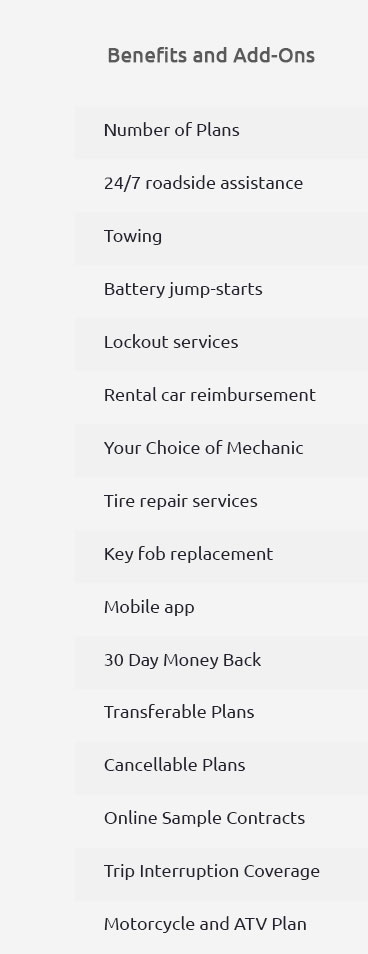 |
 |
 |
Select your vehicle to see available coverage options:
 |
 |
|||
 |
|||
 |
 |
 |
|
 |
|||
 |
|
 |
|
 |
|
 |
|
 |
|
 |
|
 |
|
 |
|

Extended Warranty for My Car: A Comprehensive Coverage GuideWhen it comes to owning a car, especially in the U.S., an extended warranty can be a valuable investment. It offers peace of mind and protection against unexpected repair costs. But what exactly does an extended warranty cover, and is it worth the cost? Let's dive into the details. Understanding Extended WarrantiesAn extended warranty is essentially a service contract that covers certain car repairs or services after the manufacturer's warranty expires. It is designed to provide financial protection and ensure your vehicle stays in top condition without breaking the bank. What's Covered?Typically, an extended warranty covers major components such as the engine, transmission, and electrical systems. However, the coverage can vary significantly between providers and plans.
Benefits of an Extended WarrantyAn extended warranty offers several benefits:
For more information on extended warranties, check out mc extended warranty. Factors to ConsiderBefore purchasing an extended warranty, consider the following: Vehicle's Age and MileageOlder vehicles or those with high mileage may benefit more from an extended warranty due to the increased likelihood of repairs. Driving HabitsYour driving habits can affect the need for an extended warranty. For example, if you frequently drive long distances, a powertrain warranty distance might be beneficial. FAQs About Extended WarrantiesWhat is an extended warranty?An extended warranty is a service contract that covers vehicle repairs after the manufacturer's warranty expires. It typically includes major components like the engine, transmission, and electrical systems. How does an extended warranty work?When a covered part fails, the warranty provider pays for the repair, minus any deductible you might have. This can significantly reduce out-of-pocket expenses. Is an extended warranty worth it?It depends on your car's age, mileage, and your financial situation. For some, the peace of mind and potential cost savings make it a worthwhile investment. https://www.reddit.com/r/askcarsales/comments/15u0xag/are_extended_warranties_ever_worth_it/
for you. Even a well off person might either trade in a German car before manufacturer warranty wore off or have an extended warranty. https://www.quora.com/How-can-I-best-make-sure-my-vehicle-extended-warranty-pays-for-repair
Read it very carefully before signing it. Look for exclusions, look for what they consider normal wear and tear. Look for deducible and copays ... https://carshield.com/education-center/2023/09/how-soon-can-i-use-my-extended-warranty
Purchasing an extended warranty or service agreement means you're covering yourself in the event that a car part fails or breaks down. These ...
|